Estimated reading time: 8 minutes
You’re in another room, minding your own business, when you hear it—your feline lets out a loud meow from the litter box. You scratch your head and wonder, “Why is my cat meowing while doing its business?”
Believe it or not, you’re not alone in asking this question. Many cat owners have the same concern. So, let’s dig into this curious cat behavior and find out what’s really going on.
Key Takeaways
- Cats may meow while peeing or pooping due to pain and discomfort, constipation, or urinary tract issues.
- Maintaining proper litter box hygiene and monitoring diet and hydration can help alleviate this behavior.
- It is important to consult with a veterinarian for a proper diagnosis and treatment plan if your cat is meowing while using the litter box.
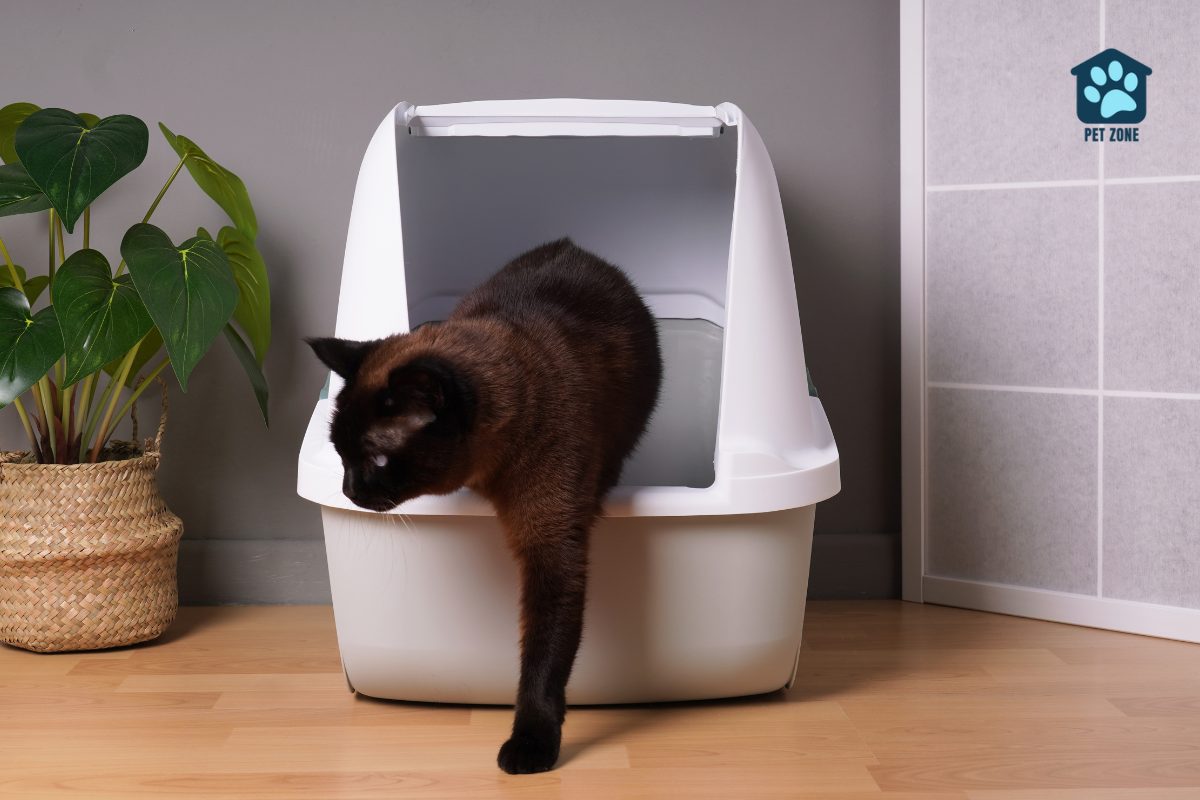
Reasons Why Cats Meow When They Use the Litter Box
Dehydration
Lack of enough water can make your kitten meow while urinating or pooping. When cats don’t drink enough water, their stool can become dry and hard. This makes it difficult for them to go, causing strain and discomfort in the litter box.
As a result, your cat may vocalize its struggle through meowing or even howling. You might notice that your cat visits the litter box but leaves without doing much, another sign that dehydration could be affecting them.
It’s important to make sure your cat has constant access to clean water. Sometimes, changing water types or offering a water fountain can encourage them to drink more.
So, if you hear your cat making noise in the litter box, check their water bowl. Dehydration is a serious concern that can impact more than just their bathroom habits.
Dirty Litter Box
A messy litter box can be another reason your cat meows while pooping. Cats are clean animals and may feel uncomfortable using a dirty litter tray. The unpleasant environment can make them anxious, leading to vocalizations like meowing or yowling.
Sometimes, your cat might step in and step out of the litter box without going, indicating its displeasure.
Keeping the litter box clean encourages good bathroom habits. Make it a routine to scoop out waste daily and change the litter entirely every week. A clean litter box can not only make your cat more comfortable but also lessen the chance of them developing issues like constipation.
So, if you hear that distinctive meow from the litter box, it might be your cat’s way of saying it’s time for a clean-up.
Constipation
Constipation can cause your cat to meow while he poops. A cat that is constipated has difficulty when trying to poop. The strain tires them out and may cause pain or discomfort.
This often leads them to meow or even howl in the litter box. The problem starts if their stool becomes too hard or dry. It makes it tough for your cat to go poop in the litter tray.
Sometimes, older cats face this issue more due to a change in diet or lack of water intake. Also, a dirty litter box could make your cat hold back from going potty, which might lead to constipation over time.
Blockages
Sometimes, a blockage in your cat’s digestive or urinary tract can be the culprit behind the meowing. Blockages can occur due to hairballs, ingested objects, or even clumps of hardened stool.
These obstacles make it challenging for your cat to pass waste, causing strain and discomfort. When they go to the litter box, this struggle may come out as meows or loud yowling.
Frequent trips to the litter box with little to no results can be a big red flag. Blockages are serious and can lead to severe health issues if not treated quickly.
If you suspect a blockage, it’s important to consult a vet as soon as possible for diagnosis and treatment. They might perform tests like X-rays or ultrasounds to locate the blockage and determine the best course of action.
So, if you hear more meowing than usual from the litter box, don’t ignore it. Your cat may be signaling a bigger issue that requires immediate attention.
UTI and Other Health Issues
Urinary tract infections (UTIs) and other health problems can cause your cat to meow when peeing or pooping. A UTI can make it painful for your cat to use the litter box, prompting them to meow or even howl. Sometimes, you might see red blood on their stool, signaling that they’re in distress.
In addition to UTIs, conditions like kidney stones can also make it painful for your cat to go. These health issues might lead your cat to visit the litter box more often, each time meowing because it hurts.
Feline idiopathic cystitis (bladder inflammation) is another urinary issue that can lead to strain and discomfort. It mostly occurs in cats between 2 and 7 years old.
If you notice any of these signs, it’s crucial to consult a vet. Health issues like UTIs require prompt treatment to prevent complications. And remember, some cats hide their pain, so stay alert for any changes in their litter box behavior.
A vet visit can provide a proper diagnosis and treatment plan to make your cat comfortable again.
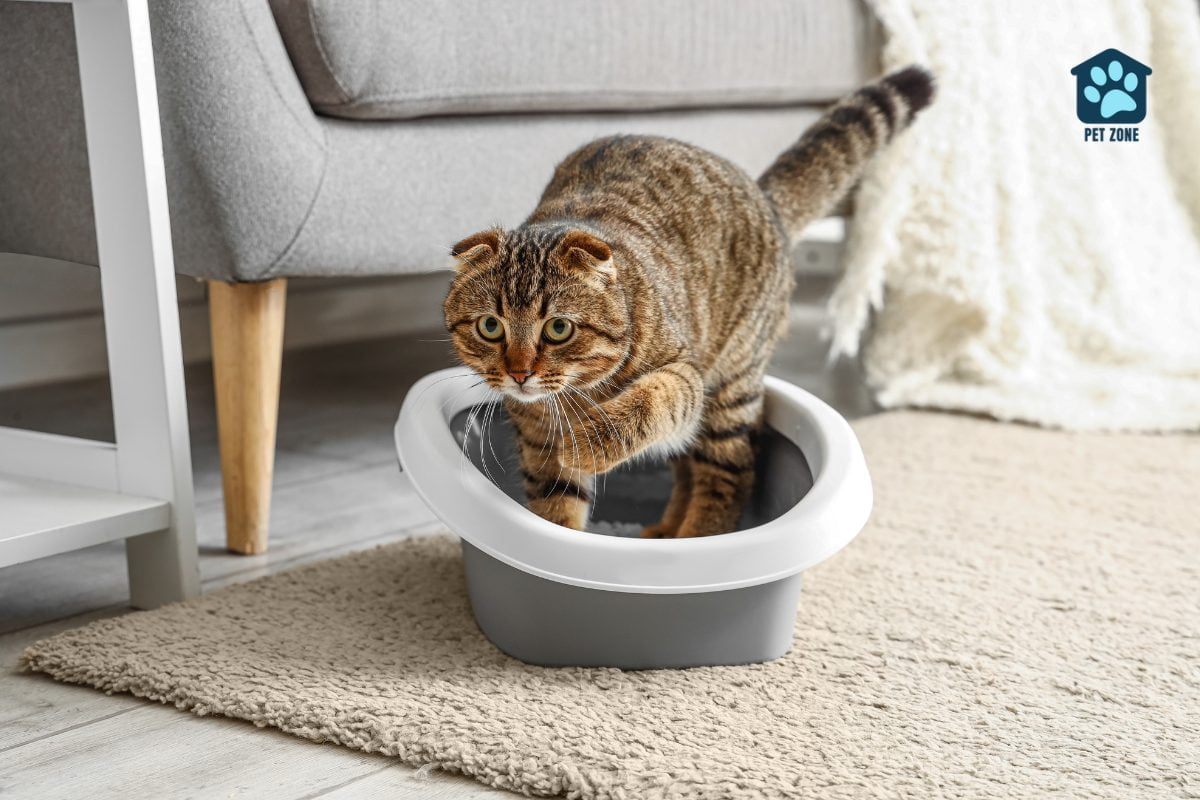
How to Address the Problem: Is It Time to See the Vet?
To address meowing while pooping, it is essential to talk to a veterinarian for a proper diagnosis and treatment plan. Additionally, providing proper litter box hygiene and monitoring diet and hydration can help alleviate any discomfort or underlying issues causing the meowing.
Talk to a veterinarian
If your cat is meowing while pooping, it’s important to talk to a vet. They can help determine the cause of your cat’s meowing and address any underlying medical issues. Cats may meow while pooping due to constipation, pain, or urinary tract problems.
A veterinarian will be able to diagnose the problem and provide appropriate treatment. It’s crucial not to ignore excessive meowing in cats, as it could be a sign that something is wrong. Seeking professional advice will ensure your cat receives the care they need for a healthy and comfortable life.
Provide proper litter box hygiene
To ensure your cat’s comfort and prevent unnecessary meowing while pooping, it’s essential to maintain proper litter box hygiene. Here are some tips for keeping the litter box clean and appealing to your cat:
- Scoop the litter box at least once a day to remove any waste. Cats prefer a clean and odor-free environment, so regularly removing waste will encourage them to use the litter box without meowing.
- Completely change the litter in the box every 1-2 weeks. This will help keep the litter fresh and prevent any buildup of odors or bacteria that could cause discomfort to your cat.
- Use unscented, finer-textured litter. Some cats are sensitive to strong scents or rough-textured litters, which can cause them to meow when using the litter box. Opt for a more natural option that suits your cat’s preferences.
- Provide multiple litter boxes if you have multiple cats. Each cat should have their own designated area to eliminate, as some cats might feel stressed or uncomfortable sharing a single litter box.
- Place the litter box in a quiet and easily accessible location. Cats prefer privacy when using the litter box, so avoid placing it in high-traffic areas or near noisy appliances that could startle them.
Monitor diet and hydration
To address meowing while pooping, it’s important to monitor your cat’s diet and hydration. This can help prevent constipation and other issues that may cause discomfort during bowel movements. Here are some ways you can monitor your cat’s diet and hydration:
- Provide fresh water: Make sure your cat has access to clean, fresh water at all times. Keep the water bowl filled and change it regularly.
- Choose a balanced diet: Feed your cat a high-quality, balanced diet that suits their age, size, and health condition. Consult with your veterinarian for recommendations.
- Monitor portion sizes: Avoid overfeeding or underfeeding your cat. Follow the feeding instructions on the cat food packaging or consult with your veterinarian to determine the right portion size for your cat.
- Increase moisture intake: Some cats may benefit from wet cat food or adding water to their dry food. This can help increase their overall hydration levels.
- Offer treats with caution: Treats should be given sparingly and in moderation. Some treats can be high in calories or contain ingredients that may not be suitable for all cats.
- Watch for changes in eating habits: If you notice any sudden changes in appetite or eating habits, it could be a sign of an underlying health issue. Contact your veterinarian for guidance.
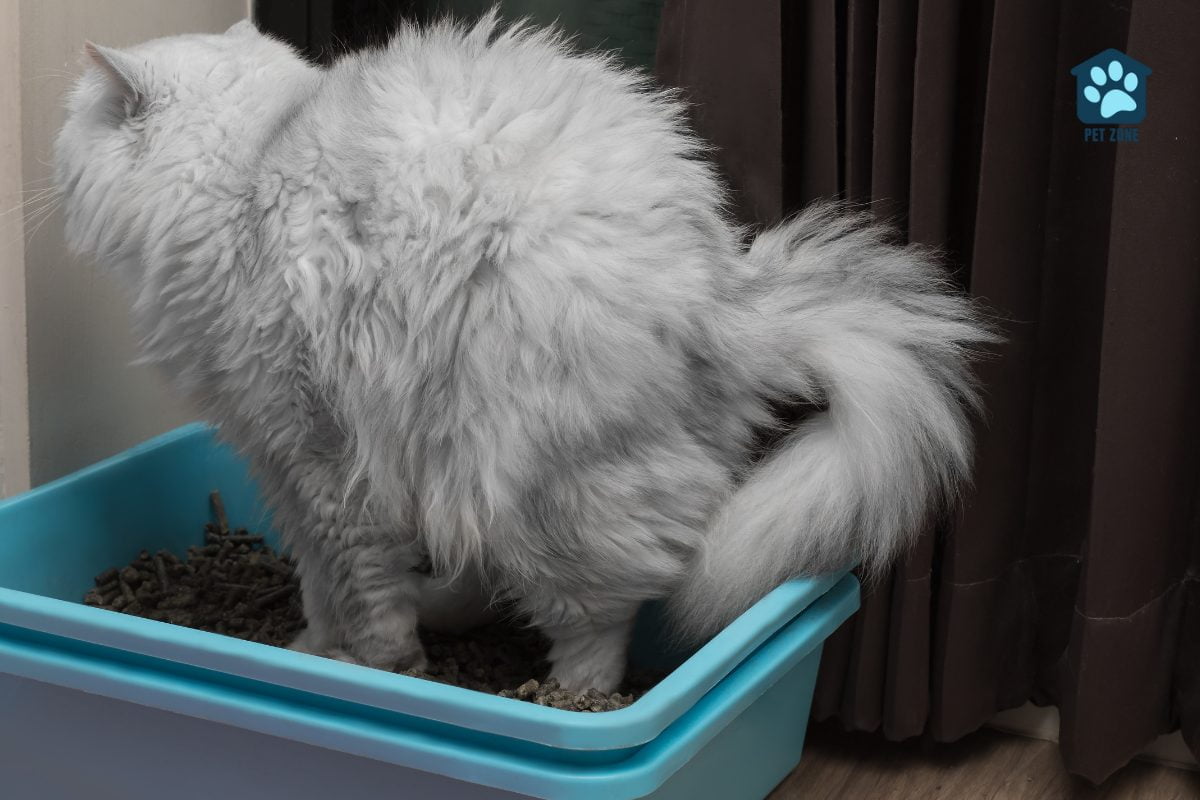
Conclusion
If your cat has always meowed using the litter box, then it could just be a normal quirk of your four-legger. However, if you believe it to be a sign of pain or discomfort, it’s important to pay attention to their behavior and seek veterinary help if needed.
Taking care of your cat’s litter box hygiene and monitoring their diet can also help address this issue. Remember, understanding why your cat is meowing while pooping is crucial for their well-being!
As an Amazon Associate I earn from qualifying purchases.
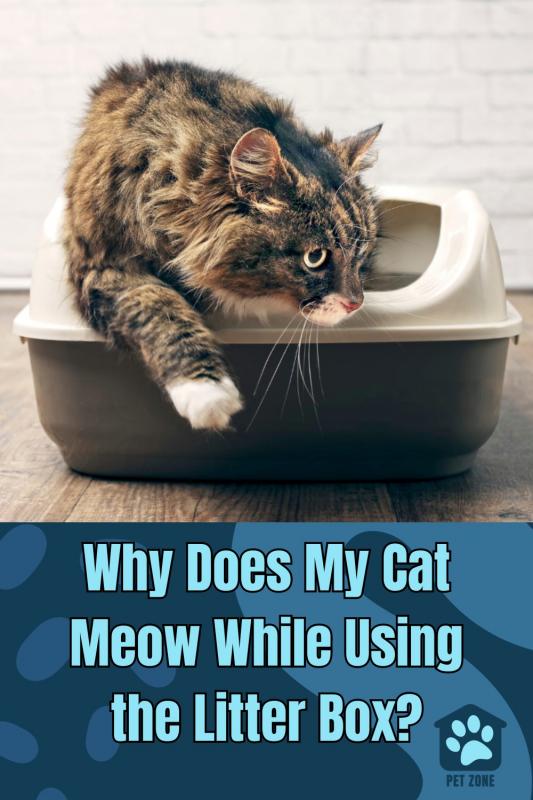


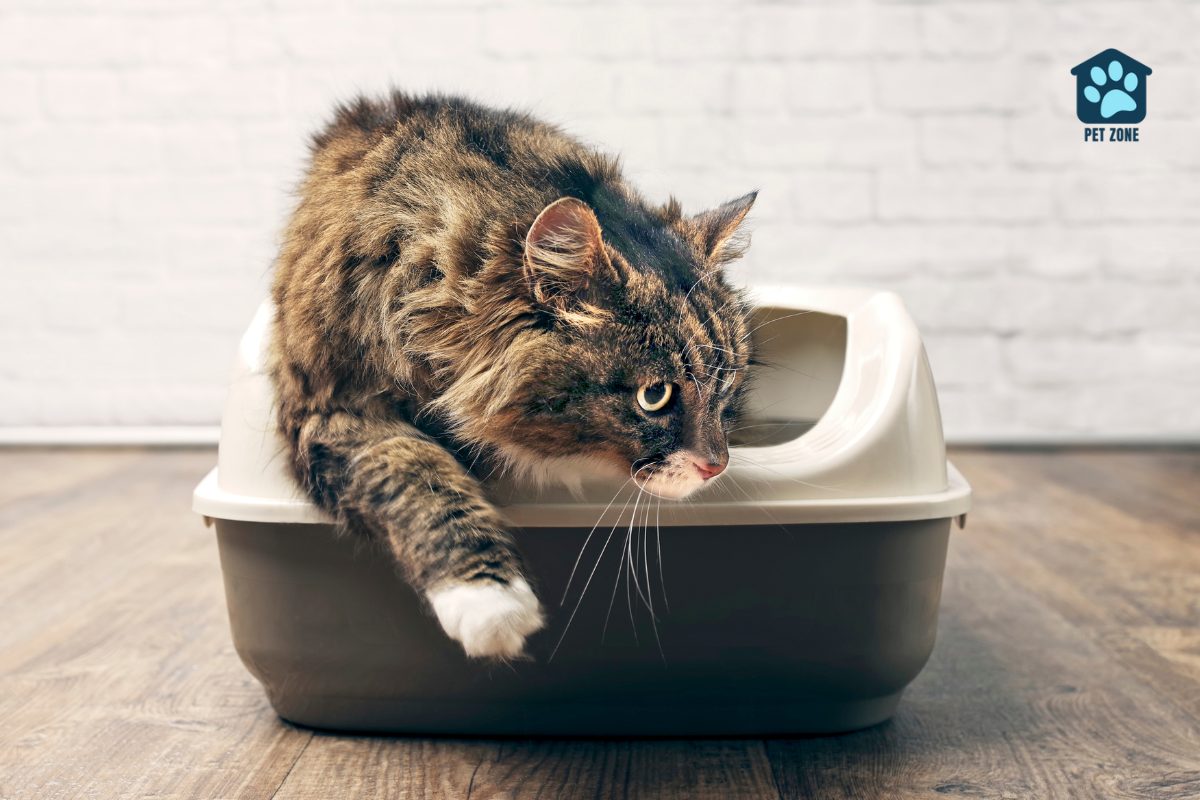
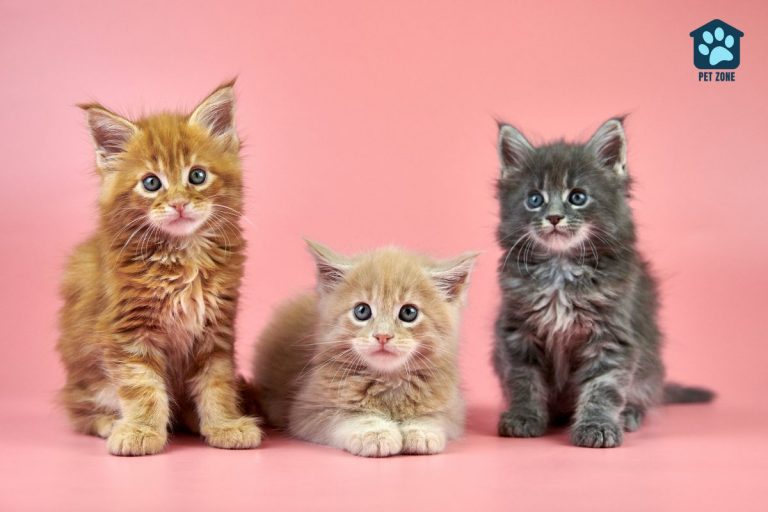
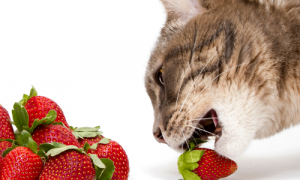
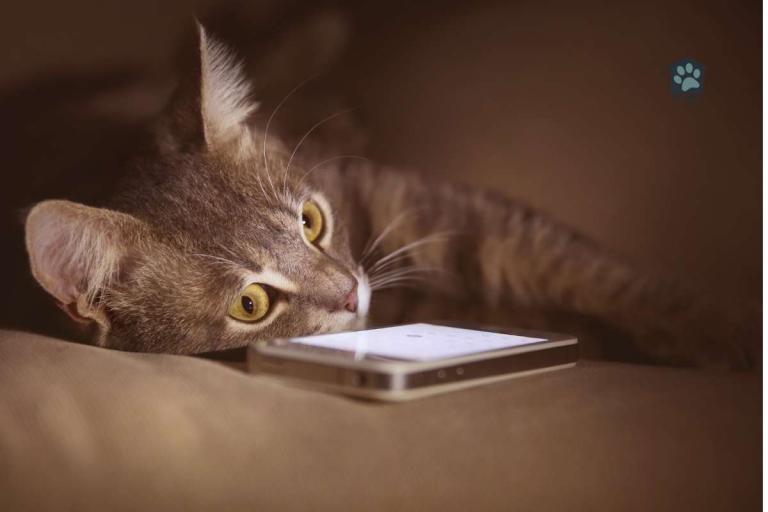
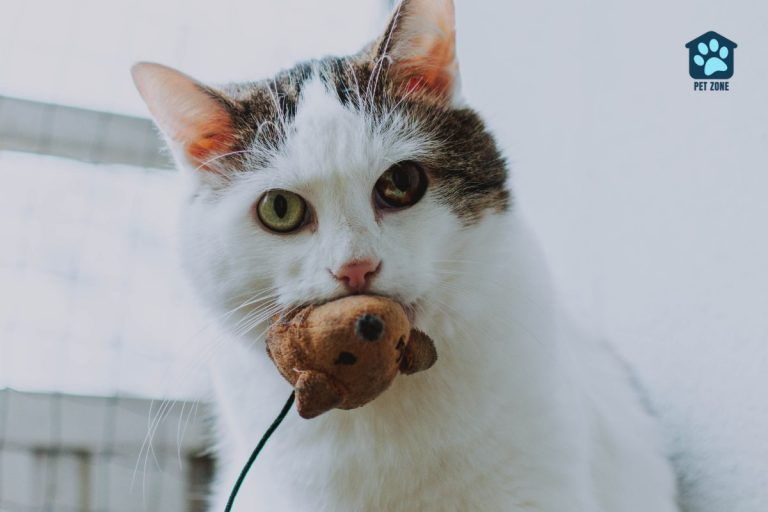
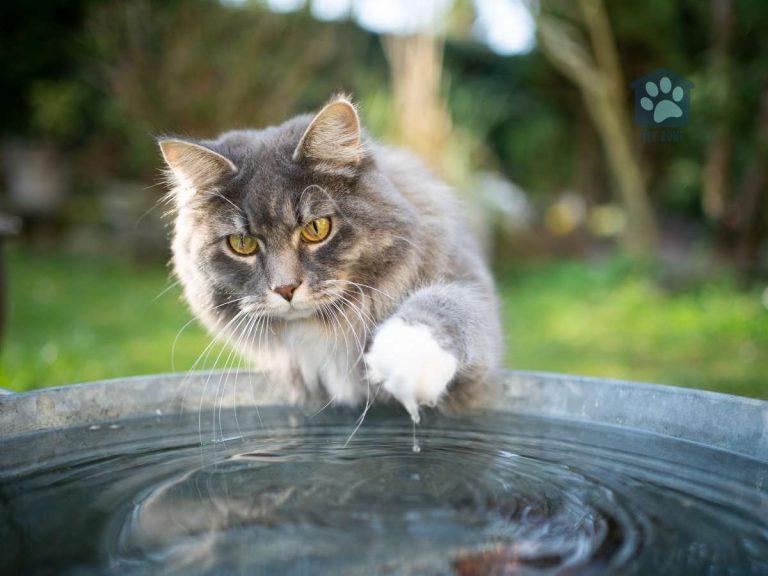
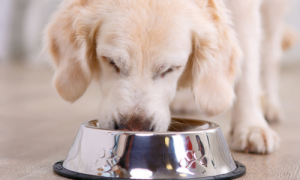
Hello Friend,
You have got very informative topics related to pets. Your observation is very keen and on micro level.
It shows that how much closer you are to pets.
Congratulations for having very intelligent work especially regarding excellent keyword selection.
Keep it up.
Javed Iqbal
I have a male cat, and this happened to him. When we brought him to the vet, we discovered he was blocked because he had struvite crystals from alkaline urine. It could have been life-threatening if we hadn’t taken him to the vet.
This happened to my kitty long ago. His bladder was blocked. I had to take him to the vet and the culprit was cheap food that I got at the bulk bin at the grocery store. After that he had to be on expensive food from the vett with low ash. I learned my lesson and have never bought food like that again. I also notice that a problem can be not changing the waterer often enough. We have 3 cats and I bought a large waterer thinking that they would never run out of water, but the bad thing is the water gets slimy and needs to be changed often. I didn’t realize this at first or I would have bought a much smaller version.
I am not a cat owner but this is a helpful information to know about. I totally agree that maintaining a proper litter box will help a cat in many ways.